So after I originally worked on discovering what the winners of the Morning International Comic Competition, I ended up getting a response that let me know not of the winners, but a few of the finalists of M.I.C.C. With my curiosity at its peak, I decided to find out about all the runner-ups of the competition, and see what they’re up to. You…may be surprised.
NOTE: I only listed the runner-ups for those I could get in contact with/could find any information on.
1st M.I.M.C
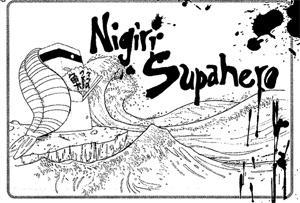
Liou Ming Law: Worked on Nigiri Supahero
It didn’t take me long to find out where Ming Law was. So, I guess we can go over this with much ease:
- Bates CHI & Partners is a recent network startup involving marketing
- Ogilvy & Mather is an international advertising, marketing, and public relations agency
- Imagination is an independent, creative communications company.
- Liou Ming Law has worked with them at some point.
One word: Damn. Now, it doesn’t look like Ming Law’s working on comics anymore. But I think it’s safe to say he found his passion. Maybe.
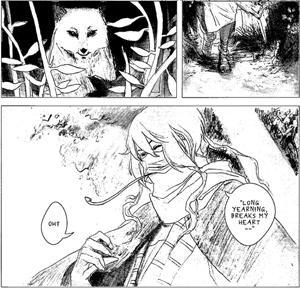
Hwei Lim: Worked on Vefurrin
Hwei Lim since the first competition hasn’t disappeared from actually doing comics. Or drawing. She’s worked on a few short comics before too. I guess it’s somewhat safe to say she’s freelancing as well? Well, whatever the case, she’s definitely still around, available, most definitely has a following, but is probably busy. You can give her a follow on her Twitter.
Second M.I.M.C
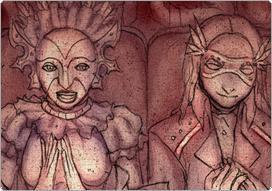
Kathryn Chong: Worked on Puppet Eyes
It all started with this. It started once I got engaged in conversation with someone who’s some sort of manager for Manga Magazine. Because of that person, this is how this post got started.
A-anyways, Kathryn, aside from her comic she’s doing, is apparently (or possibly?) going to be doing some work for Konami. You know, Konami. I don’t think I need to tell you who Konami is. Aside from that, she had a feature done for her a few years ago.
Kinono: Worked on Joe’s Teeth
There’s not really much information I could find on Kinono…until I found the above video, which basically speaks for itself. He’s still drawing, has done his own graphic novel, and looks like he’ll be heading off to the Angoulême International Comics Festival at the end of the month. I had actually never heard of that festival until I searched for it. It’s apparently the second biggest festival, with Comiket as the first.
I think that’s a good thing.
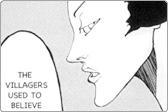
Kosma Gatner: worked on Assassins
Unfortunately, I was only able to find this page. That is it. Kosma’s now in that zone where a mark was left on getting in, but after that, vanish. Which I guess happens. Life happens.
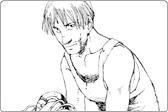
Andrea Iovinelli Massimo Dall’oglio: Worked on Hermes
Not exactly much information could be find out about Massimo, but thanks to Amazon, it looks like he did some work on a graphic novel series called Underskin, but that’s about it since. There’s a decent chance he’s still possibly working on stuff, but the language barrier’s a bit too much to overcome. If there are any from Italy that know what he’s up to, you can always let me know!
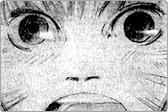
Anna Sergeeva Tsocheva: worked on Exit
When I had gotten in contact with Anna to see if she had any thoughts about M.I.C.C ending, she was expecting it to actually take place again (so much so that she had a project in the works for it). So yeah, I ended up being the bearer of bad news! But based on her responses, I think she’ll be ok. Since 2008, she’s been doing a few freelance jobs and even had become a teacher at some point. Now she has taken it upon herself to do some manga courses in her country — that would be Bulgaria. Her thoughts about M.I.C.C:
Organization ASG: Since the 2nd M.I.C.C ended in 2008 for you, what have you been up to since then?
Anna: Unfortunately I can’t really say that in spite of not being a winner I became a really successful artist in the last few years. Since 2008 I participated in only 1 other contest in Japan and several smaller contests around the world. I only managed to complete several short stories in that time. But I was working on two bigger projects. I guess the only major thing to happen, in relation to manga is I started my own manga drawing courses in my country. I am by no means an expert or even good enough at manga — but the drawing community here is small and fragile (next to non-existent) — so this was my way of supporting it and dedicating myself to comics.
What’s the one thing you took away from working on Exit for M.I.C.C?
I was extremely proud of even making it in the final rounds and really fired up by the scope of this contest! The one thing I will always treasure so much is that little paragraph someone from the jury wrote explaining what my strengths and mistakes were! The fact that this came from someone with so much experience made me think about and try to learn a lot from them! Which, I think I have, if even a little. As for what I took from making Exit itself — it was how hard it was to keep working on one project for so long and how difficult it can be to tell a story so that someone else can read, understand and appreciate it as much as you do.
Finally, with the competition no longer taking place, is this a sign that it’s just hard to break into the manga industry, or do you feel there’s something more? Otherwise, any final thoughts on how/if the competition helped you grow as an artist.
I think it’s always been hard to break into the industry — and especially from outside Japan (nearly impossible, with some happy exceptions of course). But it’s a sign that the industry is still very conservative — it’s very unlikely, in my opinion, that so many good comics are created every day and published over the internet and by traditional means and at the same time, the contest holders are not receiving worthy submissions. I’ve seen some outstanding work on their web page over the years. I think artists grow but their talent and creativity need time and support to be nurtured and if someone wants to produce great talent, a contest is just not enough. Of course that is in the light of the post on your blog, concerning the reasons for ceasing the contest. I do not know what it means, in reality, but I feel it’s just that the committee doesn’t want to invest time and effort in supporting young talents, but rather find ones that are good to go–that is, ready to start publishing. Which, I can somewhat understand since after all, they are not a school but a business.
A competition is always beneficial to the participant — it helps you realize where you stand in the real world and gives you the motivation to keep going sometimes. But I’ve participated in many, many competitions without ever amounting to anything before I was a finalist in M.I.C.C. Even if the competition first started several years ago, I think it’s too early to judge the results from it. And I keep my hopes up for all those great talents that made it as winners — I think we can expect a lot from them. I know that entering that competition for me was a valuable evaluation of how much more I needed to learn but also of how much I have already achieved-it was a much needed boost that helps me even now.
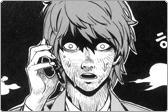
Byun Ki-hyun: worked on Phone
Just want to admit that when I see that picture, I get a Light vibe. You what Light I’m talking about. Anyways…
This is another guy that I’m not sure if this information is accurate or not, so just like Kim DaeJin, this is not confirmed. But I think this might be more accurate, since he’s also part of an anthology in 2009. It just might be the same guy that did Phone. There’s just enough out there to make me think this is what Byun’s been up to. If so, then that’s a hell of an accomplishment, as he’s been doing some work on some comics. If not, well…that sucks. But again, this is not confirmed, so let me get away with this!
3rd M.I.M.C
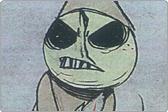
Xie Pang (Eliparvic Xie): Title not translated
Here’s another person who’s made hay after the competition. Now, just go back to what the judges said about Xie’s piece at the end (title omitted):
For a short story the theme is simpler than it needs to be; and while (title) is a black comedy, the humor seems almost too cruel!
Well based on what I have read of it, Xie’s latest work, Darkness Outside the Night, it might just be a bit darker, as it focuses on China and possibly the conditions there. I say possibly since I haven’t read it. (The work is on iTunes). But unlike some of the runner-ups, seems Xie’s still drawing, and probably continuing to draw out there.
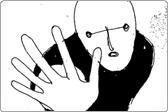
drewscape (Andrew Tan): worked on Time Beings
Andrew entered his work Time Beings for the competition. Did he let just being one of the finalists get him down? No, not really. “Getting shortlisted but not winning was encouraging,” he said as I asked him a couple questions over email. ”It was a sign that I was at least headed in the right direction. And I just worked on improving from there.”
He certainly did, as his work Monsters, Miracles, and Mayonnaise, a collection of short stories involving unexpected encounters with strange beings from another world, was nominated for an Eisner last year. Outside of working on comics in his free time, he’s been doing illustrations for magazines and advertising agencies as a freelance illustrator.
I think it’s safe to say he’s done well since entering the competition. Here’s his thoughts about M.I.C.C:
Organization ASG: Since M.I.C.C was over for you in 2009, what have you been up to since then?
Andrew: Since then I’ve worked on my own comics and got a graphic novel out called “Monsters, Miracles and Mayonnaise“. It’s a collection of short stories. One of the stories was nominated for an Eisner in 2013. That was encouraging. Other than that, it’s my day to day work as a freelance illustrator. I do illustrations for magazines and advertising agencies. In my free time, I’m still working on more comics. I hope to publish another graphic novel when I’ve got enough good work together.
What’s the one thing you took away from working on Time Beings for M.I.C.C?
I learned a lot about pacing and and how to make my characters clearer in terms of motivation. And also how to make the drawings raw and hand-drawn yet polished and presentable enough. I was still working on that in that comic.
Finally, with the competition no longer taking place, is this a sign that it’s just hard to break into the manga industry, or do you feel there’s something more? Otherwise, any final thoughts on how/if the competition helped you grow as an artist.
Well, it wasn’t my goal to break into the Japanese manga industry in the first place. It was more to get a gauge on how I was doing in the eyes of the people who produce manga in Japan. Getting shortlisted but not winning was encouraging. It was a sign that I was at least headed in the right direction. And I just worked on improving from there. I’d say that competition helped me think more seriously about what makes a comic story strong and successful. And also how to make it stand out among all the other comic stories out there. It also forced me to complete a whole story. That takes stamina.
There are so many other ways to get a comic published that I would not worry that the competition is discontinued. I think the primary focus should be on making the stories strong and the art good. And then I think it would be no problem of getting a comic or comic series published.
You can find out what Drew’s up to on his website.
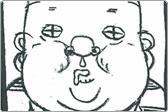
Seah Ze Lin: worked on Busy Rider
Yep, Seah Ze Lin’s still drawing. No, really, he is, honest. And we even got a video:
Man, such talent…

Shen Ying-jieh: Worked on Dream No. 14
Out of all the artists on the list, Shen might be the one that has gotten her work published in a magazine? Well, for starters, her art is pretty good, and she did the Taiwanese cover for Scott Lynch’s The Lies of Locke Lamora book. Then there’s this VERY unconfirmed source that she…may have a work in Dragon Youth Comic? That’s the sister publication of the Shonen Jump offshoot, Formosa Youth, in Taiwan. Then there’s stories of her graphic novel works, The Wings of Kopule and Bai Hua Café, or just her going to Kyoto International Manga Musuem. If most of this is true (I think the only one I can’t confirm is her working in Dragon Youth, like 15% sure on that one), then that is pretty impressive.
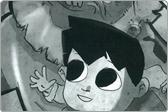
Eduardo Damasceno/Luis Felipe Garrocho: Worked on Kami no Kami
I did not expect to find out what happened to these two, as everything came up in a language I couldn’t understand (or basically I don’t know Portuguese). So it would be my luck that I would find Luis’s profile on Kickstarter, and that was how I found their website. And, well, English is something they can speak. Man, I suck. Anyways, they’ve done fairly well for themselves since the competition, having a few of their own works published (either by themselves or a company), and they’ve published comics from others as well. Now here’s their answers to my questions!
Organization ASG: Since M.I.C.C was over for you in 2009, what have you been up to since then?
The M.I.C.C was the first contest we entered, and the first real work we did together. Since then we started a webcomic in 2010 in which we made a comic page from the lyrics of a song. That got us to be noticed and we decided to publish through crowdfunding our first graphic novel, “Achados e Perdidos”. It was the first graphic novel published this way in Brasil. We then made a second graphic novel Cosmonauta Cosmo in 2013, that one published trough a very small publisher in association with our own label “Quadrinhos Rasos”. We’ve published books from other authors and are slowly turning the label into a publisher, that may happen this year. We’ve already published 8 books as a label. In the meantime, we are working now on our first graphic novel for a big publisher which is “BIdu” - for MSP (they are the creators of Monica’s Gang, a big comics franchise in Brazil) that will be published later this year.
What’s the one thing you took away from working on Kami no Kami for M.I.C.C?It was an amazing experience. For the first time we saw that we really were able to do that and we got actual feedback from experienced editors. It no longer was a hobby and that was definitely amazing. We entered contests and sent our work abroad because we really didn’t know that we would be able to make a living from comics in Brazil. We were wrong and it was the best thing that could happen. Being one of the finalists of the M.I.C.C was amazing, getting the feedback was great and learning through our mistakes it was awesome.
Finally, with the competition no longer taking place, is this a sign that it’s just hard to break into the manga industry, or do you feel there’s something more? Otherwise, any final thoughts on how/if the competition helped you grow as an artist.We were never trying to break into the manga industry actually, we were looking for people that were interested in seeing our work. I don’t think that it’s any harder than any other industry, you’ve just got to aim at what you really want to do and work your butt off. Really, there are no secrets, just work as hard as hell, that goes for any comic industry in the world. The manga industry is huge and they have a well established market, so things won’t happen quickly for anyone . What we really wanted from the beginning and still want is to make comics (or manga, or BD – not using comics here to refer to any specific kind of comics) in an entertaining way, we want to tell the histories we have to tell and want them to get to greater number of people possible. I think there willl always be other contests, or other ways to get noticed. And if what Morning states is real, then I think they are quite right in ending the contest, since the view of “manga” around the world is very different from what they are looking for.
4th M.I.C.C
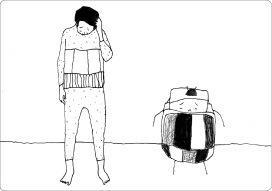
Michael Aubtin: worked on Starfields
Michael Aubtin Madadi, after his entry in the 4th M.I.C.C, since did a video called Selfon’s Dream. It’s been looked at a good amount (thanks Google!). Not sure what’s he’s been up to since then, but it’s generally a good thing you can easily search for him. You can check out his work on his website.
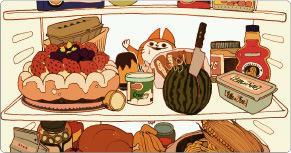
Little Thunder: worked on Apple Baby Cat
This almost was difficult to find. But thanks to me putting the location, it became easy. She’s been drawing for a long while, with that shoujo style being her forte. Here, have some art to look at. Doing some more searching she’s had her own exhibits, and continues to keep doing some drawing. Whether she’s drawing any comics is the one thing I couldn’t really find. Anyways, feel free to check out her Facebook and Instagram page.
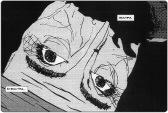
Mattias Elftorp: worked on Spyware
Mattias seems to be pretty big in Sweden, as there’s lots of information to find about him. In a language I don’t know. But anyways, since his moment in M.I.C.C, he’s continued to work on a bunch of comics, including Piracy is Liberation. Which seems to be what he’s most known for. In general, he’s been working on comics for a while. So no matter what the outcome of the competition, Mattias would still be drawing.
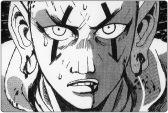
Clio Millett: worked on Bird Spotting
Some good news and bad news. Good news is Clio has a website, and did work on a comic after Bird Spotting for another competition. The bad news is not much since. Her profile says she’s been doing freelance work since, but nothing else since then. Maybe she’ll go back to comics. Maybe she won’t. For now, we’ll never know…
5th M.I.C.C
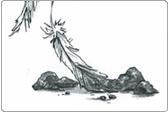
dee jussan (Diana Al-Abbadi): worked on What once was a dove
Diana, who lives in Jordan, has had some success since her entry, What once was a dove, was one of the finalists in 2011. She’s worked on her own comic Grey Is, and worked on a comic that happened to be a runner up for Comic Zenon last year. Here’s her response to M.I.C.C:
Since M.I.C.C was over for you in 2009, what have you been up to since then?
Before I participated in M.I.C.C, my career had been going on for 8 months with 7 chapters in an online series; Grey is. Since then, I’ve self-published 3 books of the same series and 2 logbooks and it’s being published by a Spanish Publishing House in Spain. I wrote 3 one-shots besides “What once was a dove”, one of them (a Pure Love) was a Winner Runner-Up for the First Silent Manga Audition held last year by Comic Zenon and was published in July in the Monthly Comic Zenon Magazine, and 2 pilots for 2 series that I plan to work on sometime next to Grey is...
What’s the one thing you took away from working on What once was a dove for M.I.C.C?
To quote Christopher Lasch: ”It’s not about winning. It’s the enjoyment of doing it – it gets your brain going.” It was my first time participating in a contest.
Finally, with the competition no longer taking place, is this a sign that it’s just hard to break into the manga industry, or do you feel there’s something more? Otherwise, any final thoughts on how/if the competition helped you grow as an artist.
I think there’s more than just that to it. I’ve participated in a few contests for the past 3 years and I noticed from themes, winners and contest rules, that there are three types of talent scouts in Japan:
- ones that are looking for foreigners that draw the Japanese way and write the Japanese stories
- ones that want the new different culture/storytelling in Japan
- and the ones that want what’s GOOD.
In 2008, Japanese director Makoto Shinkai visited Jordan and his Producer/Manager Kawaguchi was telling me how the anime/manga industry is starting to suffer coz it’s a craft in the hands of the elderly and that most youngsters are interested in computers and technology or outside affairs. Lately I’ve been seeing more and more international contests from Japanese magazines, so given this and what Kawaguchi told me, I think it’s easier to break into the industry nowadays.
In a way, the competition did help me as an artist because it made me more stubborn about my goals I guess haha! I was a finalist between 26 (first round) then I was chosen between the 9 (2nd round) then I didn’t make it. So, it was so close then it didn’t happen. I can’t say the contest itself, terms, rules, free theme or judges comments helped me but the experience as a whole was sure enjoyable and educating.
Also, the whole creative process was of good to me as a fresh storyteller. I made my research on what a seinen manga is, so I tried to draw a story that isn’t what you would call a shounen or shoujo. I came up with something new and it was a risk but I like challenges. The story was a complete one-shot with script that’s more like a poem about the change in human soul and a few other symbols. The narration and the bits of dialog were all in rhyme and English isn’t my first language so it was tricky and a challenge that I enjoyed and learned much from, on a personal level.
In the end, I participate in contests often, for the joy of it and for the award title of course. But I also love to hear the Judges comments coz I want advice from professionals, as I come from a country that I’m the only published manga artist in. Sadly, the comments they gave weren’t about the art nor the writing, but more like a challenge (said that they wanted to see a narrative kind of story next time) that I wanted to take the following year but couldn’t (and now can’t haha)
So in Summary:
Man, so much for the winners of the competition. I mean, I guess I should have expected there would be a good portion of artists that would have done well after the competition, but it’s pretty impressive to see this amount still drawing, and managing to have taken that experience to heart. Or something.
Much thanks to Diana, Andrew, Eduardo, and Anna for their thoughts about the competition and what they’ve been up to since.
One last note: if there are any inaccuracies or you know what’s happening with some of the artists, feel free to comment below to let me know.

